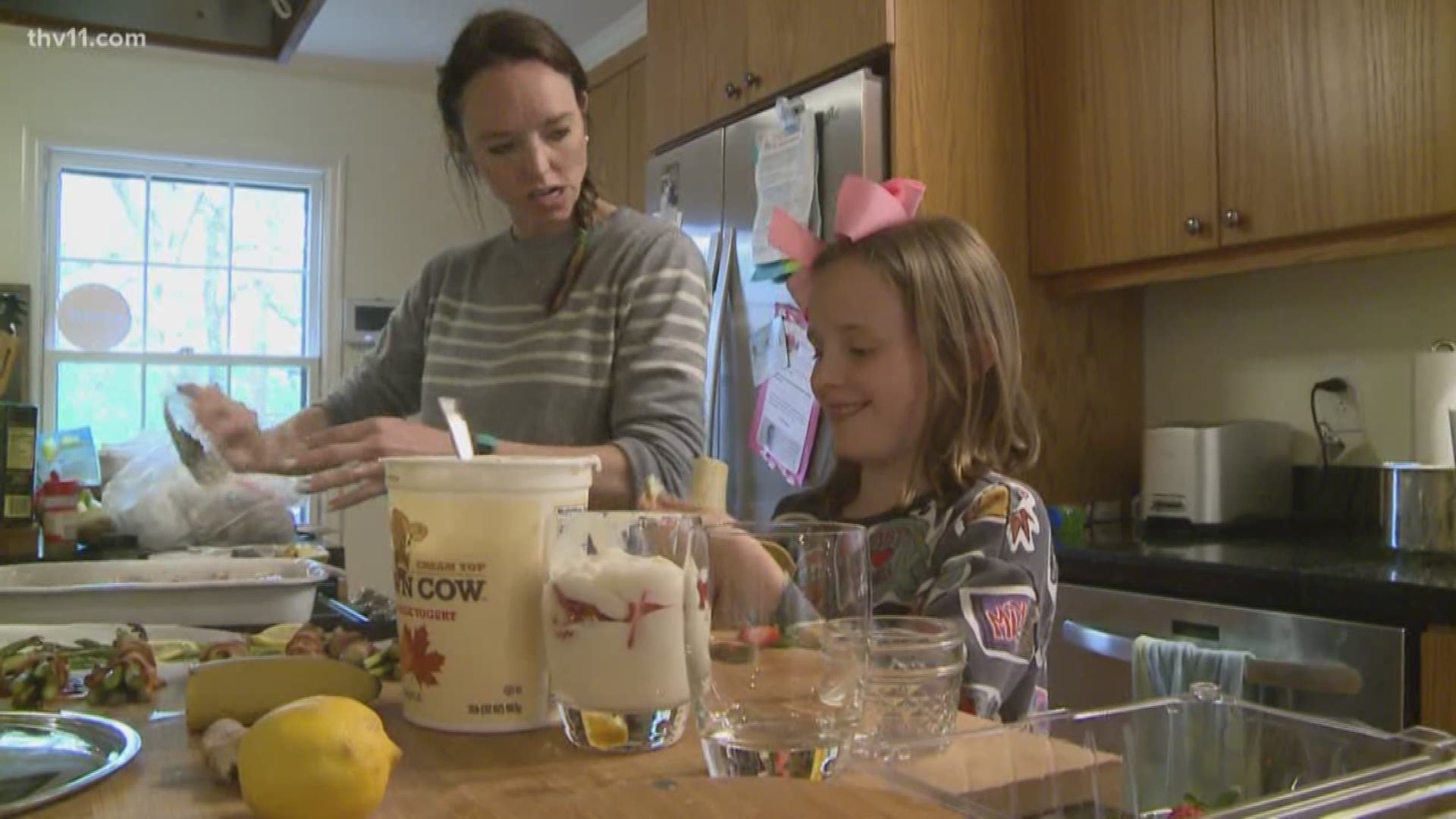LITTLE ROCK, Ark. (KTHV) - "Where do babies come from?"
That might be one of the more dreaded conversations a parent must have with their children-- "the talk!"
The birds and the bees. Explaining it all can feel like walking through a minefield.
Here’s why some parents now choose a counselor to do it for them, while others insist upon doing it themselves.
Lindsey Gillum is mom to five kids, four girls and a boy. The youngest is two, the oldest is 10-year-old Olivia.
It caught Gillum off-guard when she started asking about the birds and the bees
"She asked me what exactly the period was and what it was for," said Gillum."I was totally not prepared. We had gotten in a car on our way from Kansas City to Little Rock and she immediately asked this question, so we had 6 hours in the car to talk ab this!"
Gillum continued to answer Olivia's questions, both honestly but without over sharing, even when it got uncomfortable.
“So we did talk sperm and egg and how that creates a baby – that's where I stopped,” the mother said. “I didn't go there because I didn't think she needed to know at this time."
Everything Gillum did was by-the-book, according to counselor Liz Wright. Wright taught high school for nearly 22 years and often met single teenage mothers
“Some of them became parents because they didn't have honest and accurate information," said Wright.
She began educating children about sex in small groups, schools and churches. She teaches the correct terminology as well as what occurs physically.
"The children in the workshop I lead have the opportunity to ask numerous questions, and so almost always I learn something from the questions they ask because I don't know all the answers,” said Wright. “And I am proud to tell the children, I don't know but let's find out together."
That approach is what research shows is best.
The CDC shares multiple studies which show talking with children openly about sex improves their self-esteem and positively affects behavior during teenage years.
"If you're not talking with them I think they are going to seek out information so I wanted her to have info that I provided, rather than other people were providing her," said Gillum.
Wright says whether it's you providing it to your child or having a trusted professional do it - either is fine. As long as you open the door for them to learn
“The first thing parents say is, ‘I just don't feel qualified,’ but deep down inside I think it's much more they're not comfortable with it they don't want to discuss this with their child," said Wright.
Lindsey Gillum does want to discuss it. The nurse practitioner not only teaches her children but has spoken to younger patients at their parents’ request.
"What's cool at this point is [Olivia] asked me more questions," she said.
Now she is preparing herself for more questions from her 10-year-old – and then four more “sex talks” to follow.
“Yea my parents just didn't have that talk. I figured it out, obviously (five kids)," Gillum chuckled. "There is a reality out there, but what are your personal values and where do you want to approach it from?"
Wright's advice?
Start out early, sharing basic details, remind children they aren't alone and help them find the information they need. And, if you are too uncomfortable to have the talk, find someone you trust who can.
“I’ve had people repeatedly say I'm so glad you get to tell this and I don't have to!" said Wright.
For a list of resources, book and studies on having “the talk” click here.

